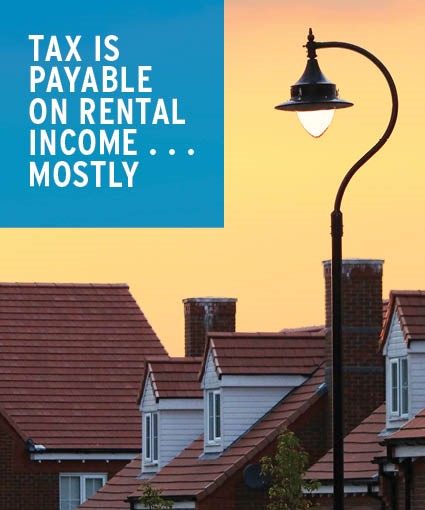
21 September 2017
If you receive income, you must pay tax. So if you have rental income, you have to pay tax on it, right?
Maybe, maybe not – if you get rent from boarders or homestays.
Boarders and homestays
When you get income from boarders or homestays, your tax position depends on how many boarders you have, and how much you charge, compared with the IRD’s standard-cost method. In other words:
| If you have . . . | Then the standard 2017 cost is . . . |
| One or two boarders | $263 a week for each |
| Three or four boarders |
$263 for boarders one and two, and |
If you charge less than standard-cost figures for four or fewer boarders, you don’t have to declare that income.
With standard-cost, when you charge more than the IRD figures you may have to pay tax. If you claim for losses, your return must not only show all payments received, but list actual costs, backed up by full documentation (this is called the actual-cost method).
Actual-cost method
Your tax position is unequivocal if you have five or more boarders – you must report that income. If you and your spouse or partner have boarders and tax is payable, the person who’s most directly involved each day should declare the income.
If you get your rental income in advance, it’s taxable in the year in which you receive it.
Owning property for generating rental income is not, usually, classified as carrying on a business, but you may deduct related expenses. Those include:
- Rates and insurance
- Interest
- Fees or commission
- Repairs and maintenance
- Related motor vehicle and travel expenses
- Mortgage repayment insurance
- Accounting costs for preparation of related accounts
- Depreciation
Rental property expenses should still be deductible even when the property is temporarily vacant.
You can’t charge GST on rent, or claim it on the property’s purchase price or ongoing rental costs. But when you claim deductions, you use the cost of the expense, including GST. However, that’s not the case for homestays, farm stays, bed-and-breakfast businesses, short-term stays (think Airbnb below) and other types of “commercial dwelling”.
One exception is if you buy a house for development, but rent it out as an interim measure. In that case the developer can claim the GST input tax on the purchase. However, if the house is used concurrently for taxable and non-taxable purposes, adjustments may be needed. It can be complex and we can help you with this.
Rentals and depreciation
The land a rental property is located on is not depreciable because it can’t be consumed and has no replacement cost. However, buildings, fixtures and land improvements are considered technically depreciable, even though they have a depreciation rate of 0 percent.
Chattels, like stove and carpets, will depreciate, and you may choose to calculate those and deduct the total as an expense.
More Articles
-
Annual Closedowns - What Does This Mean For Your Employees?
5 December 2023 As we approach the festive season, you may be starting to plan how your business...
-
Trust Tax Rate Increase
19 May 2023 NZ Budget 2023. From Koller & Hassall’s point of view, the most notable item from...
-
The key to succession planning success
So you’ve created your company from nothing, put years of blood, sweat and tears into its success, and...
-
Work. Sleep. Eat. Repeat.
Working harder is not always smarter. Burnout is common among business owners and staff who are...
-
Building trust through your branding
When it comes to the public perception of your business, creating a brand that resonates with the...